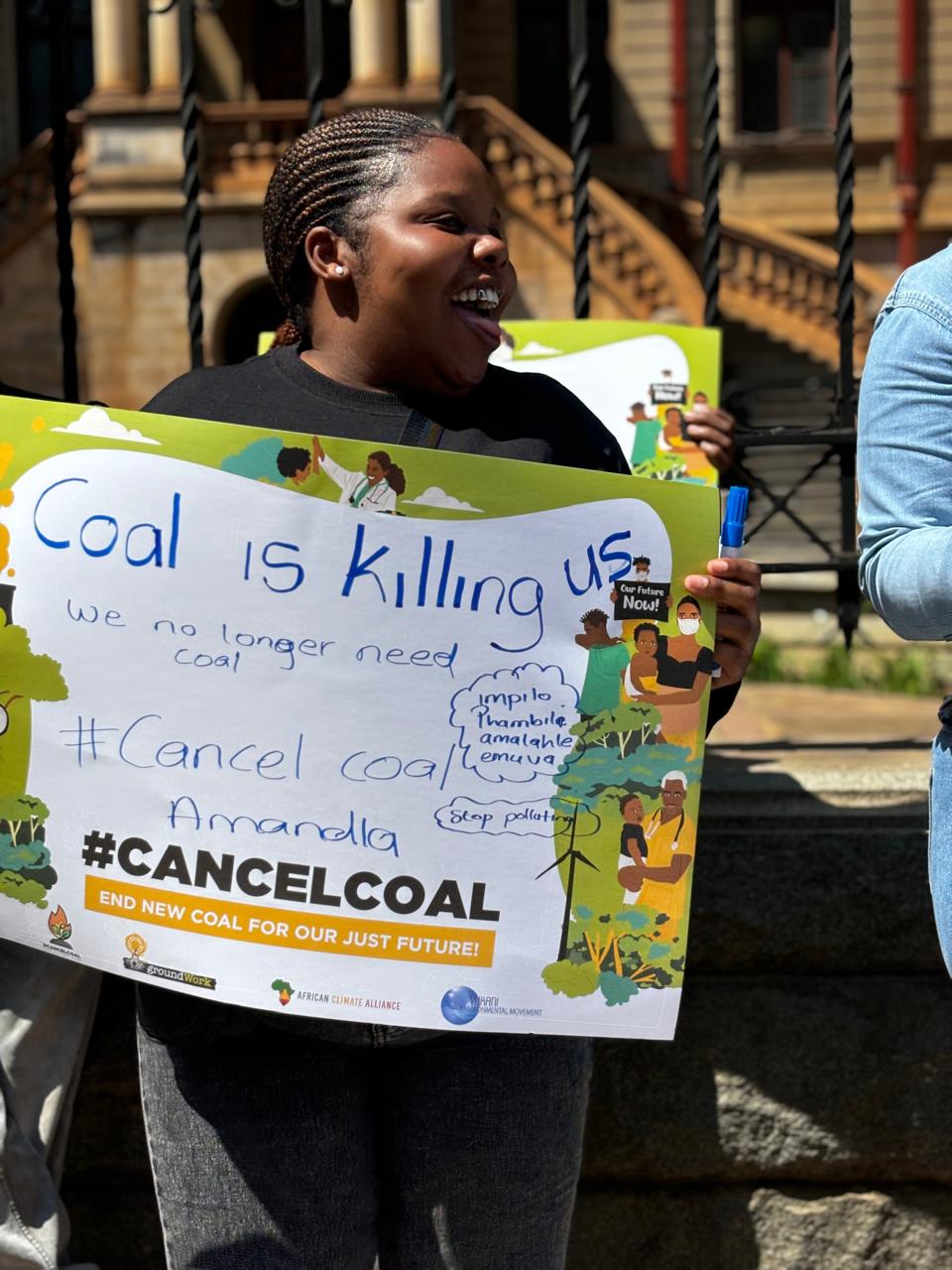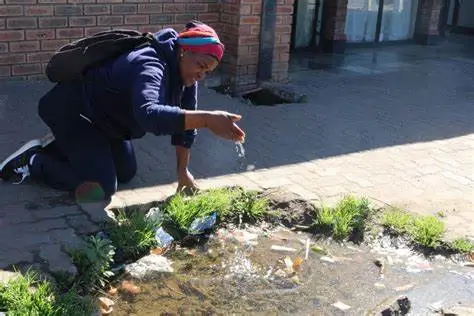In Senegal, women’s bodies are weaponized as political objects in electoral battles.
Four women on the road between Dakar and Mbour. Image credit Carsten ten Brink via Flickr CC BY-NC-ND 2.0
On June 1, 2023, Senegalese courts finally ruled on the Sweet Beauty case, in which Adji Sarr, a young woman employed at the Sweet Beauty massage parlor, had accused Ousmane Sonko, a 2024 presidential elections candidate and the leader of the African Patriots for Work, Ethics and Fraternity political party (Pastef), of rape and making death threats against her in February of 2021.
Sonko was acquitted of the death threats, but the rape charges were requalified into that of corrupting the youth. He was sentenced to two years in prison and fined 600,000 CFA francs (1,000 USD). They also ordered him to pay 20 million CFA francs to Adji Sarr (33,000 USD). Ndèye Khady Ndiaye, the owner of Sweet Beauty, was sentenced to two years imprisonment for incitement to debauchery. They fined her 600,000 CFA francs as well, and ordered the closing of Sweet Beauty.
Following this verdict, violent unrest shook Senegal for days, resulting in people’s deaths, widespread sexual assault, and the ransacking of public and private property. According to official sources, more than 20 people died, 500 were arrested, and eight cases of sexual violence against women were reported, as well as numerous cases of missing persons.
Many, especially feminists, were troubled by the verdict, which they found ambiguous and confusing. Whichever way one looks at it, this verdict deals a significant blow to the fight for women’s rights in Senegal, particularly with regards to the gains that have been made towards criminalizing rape. In this case, rape was not ruled out, but was reclassified as a corruption of youth charge instead. However, the unhealthy nature of Ousmane Sonko’s sexual relationship with Adji Sarr has been established.
According to legal experts, the corruption of youth charge refers to an adult who imposes a form of moral constraint or psychological pressure on a young person under the age of 21. At the time of the incident, Adji Sarr was 19 and Ousmane Sonko was 46. Given Adji Sarr’s precarious social status, this verdict suggests that there was illicit sexual contact between the two, but Sarr was not raped by Sonko.
Rape is one of the most challenging crimes to prove, especially because in Senegal, a sexist legal system places the burden on survivors to prove they were raped. Those who believe in the word of survivors like Adji Sarr, conclude that Ousmane Sonko’s public profile and notoriety helped him win a favorable ruling from the judge who re-characterized a set of facts which would have resulted in a crime punishable by ten years imprisonment.
However, Ndèye Khady Ndiaye’s criminal conviction shows that the massage parlor was not intended for licit activities. The massage parlor’s packages, such as the “body-body”, “happy ending” had sexual connotations. Some say that although this is not a morality trial, but it is suspect that a 46-year-old man and member of parliament who is aspiring to be president, would frequent—late at night and during a COVID-imposed curfew—a shady massage parlor where a socially and economically vulnerable 19-year-old woman was working in a profession that made her an easy sexual prey.
Rape is widespread and commonplace in Senegal, and the men accused are rarely convicted. The verdict on the Sweet Beauty case shows that Senegalese judicial authorities (who are predominantly men) seem reluctant to apply the recent law criminalizing rape. As a reminder, despite the decades-long struggle led by women’s associations to criminalize rape in Senegal, the courts previously considered rape a simple misdemeanor The law instituting its criminalization was only voted for in January 2020, after several cases of rape followed by murder that happened in the country in the previous years. The frequency of rape charges being reclassified as misdemeanors illustrates the reluctance of the courts to apply the recent law.
All the discussions and actions surrounding the trial and its verdict reveal many social realities in Senegal, not least the vulnerability of young girls in a patriarchal environment fortified by the exploitation of their vulnerability. The socio-economic fragility of young women like Adji Sarr, places them at the crossroads of several oppressions, at the heart of which are sexism, classism, and sexual exploitation. Deteriorating living standards also particularly weakens young people and women, who are doubly affected. The radicalization of political discourse and the closure of civic space contribute to silencing women. We are witnessing the advance of a self-centered male discourse in which the grievances of Senegalese women remain on the periphery and are not considered.
By using this private affair for political ends, both sides—the opposition and the ruling party—are united on one point: to undermine women’s voices and weaponize their bodies. Their instrumentalization of Sarr’s case accentuates their subordination in a misogynistic society. The entire country is caught between the whims of two powerful men. Furthermore, President Macky Sall’s silence on whether or not he intends to run for a third term disadvantages women and highlights their vulnerability. His silence has served as a pretext for politicizing a private affair between two Senegalese citizens. Adji Sarr’s body is thus tossed between the two leaders’ camps and used as a punching bag.
In recent weeks, national and international media has broadcasted a misogynistic show in which Senegalese men, including high-profile intellectuals, engage in a duel of words in the media, invisibilizing Adji Sarr and trivializing her rape. Many Senegalese people, including Ousmane Sonko, do not even know what constitutes rape. In the collective imagination, rape is just flirtation that goes too far.
By making fun of his victim’s physical appearance with abject remarks such as “If I had to rape, I would not rape someone who looks like a monkey who had a stroke,” Ousmane Sonko reveals how he considers sexual assault to be a form of flattery, a favor granted to any worthy woman. Beyond the animalistic caricature of her and the ableism of his words, Ousmane Sonko ignores that rape is neither romantic nor about sexual attraction. Rape is about power and control and has nothing to do with the victim’s appearance. Otherwise, babies and toddlers would not be sexually assaulted. An example of this is the current case of the 36 girls aged between six and 16 who have been sexually abused by a Koranic teacher near Touba.
Furthermore those who accuse Adji Sarr of being manipulative are being sexist and infantilizing. These allegations suggest that women cannot formulate accusations on their own. It reinforces sexist stereotypes and minimizes the voices of women who report sexual violence. This assumption also questions the value of the words of rape survivors. Every time a rape survivor comes forward, she must put in much physical and psychological effort. Just as there is no typical rapist, there is not a perfect survivor. Each survivor works through her trauma differently and remakes her life in her own way. Adji Raby Sarr is no exception. Nor is Mr. Sonko, even if he is known by the sobriquet “mu sell mi,” The Holy One.
Rape is a weapon of domination, and women are the first to pay the price. Over the course of the recent unrest, eight women were raped: three students at the Assane Seck University in Ziguinchor, and five others by hooded men who attacked the Columbia hotel bar in Diamniadio. Women’s bodies have been commodified and turned into public property to be plundered like the commodities stolen during demonstrations by looters; to be grabbed and consumed at will.
Senegalese women’s voices must free themselves from the grip of politicians craving power. The facts surrounding the Sweet Beauty case must be reported in their unforgiving truth, notwithstanding the assumptions, prejudices, preconceptions, and stereotypes that they embed. Their chronology leaves no doubt in the mind of a free thinker. Senegalese politicians exploited a private affair for their own political ends and to shield a political leader from having to answer for his actions. That the same affair was used by the other side to eliminate a political adversary is possible, especially given the country’s recent history. Politicians have undermined women’s voices and bodies by mixing politics and private affairs.
The reputation of the Senegalese state as an exceptional example of democracy in Africa is nothing but a mirage. It has been built to the detriment of women, women who have not been able to express the suffering they endure on a daily basis in a hypocritical society. We are witnessing the expression of Senegalese masculinity in perfect hegemony against a backdrop of the destruction and abuse of women.






